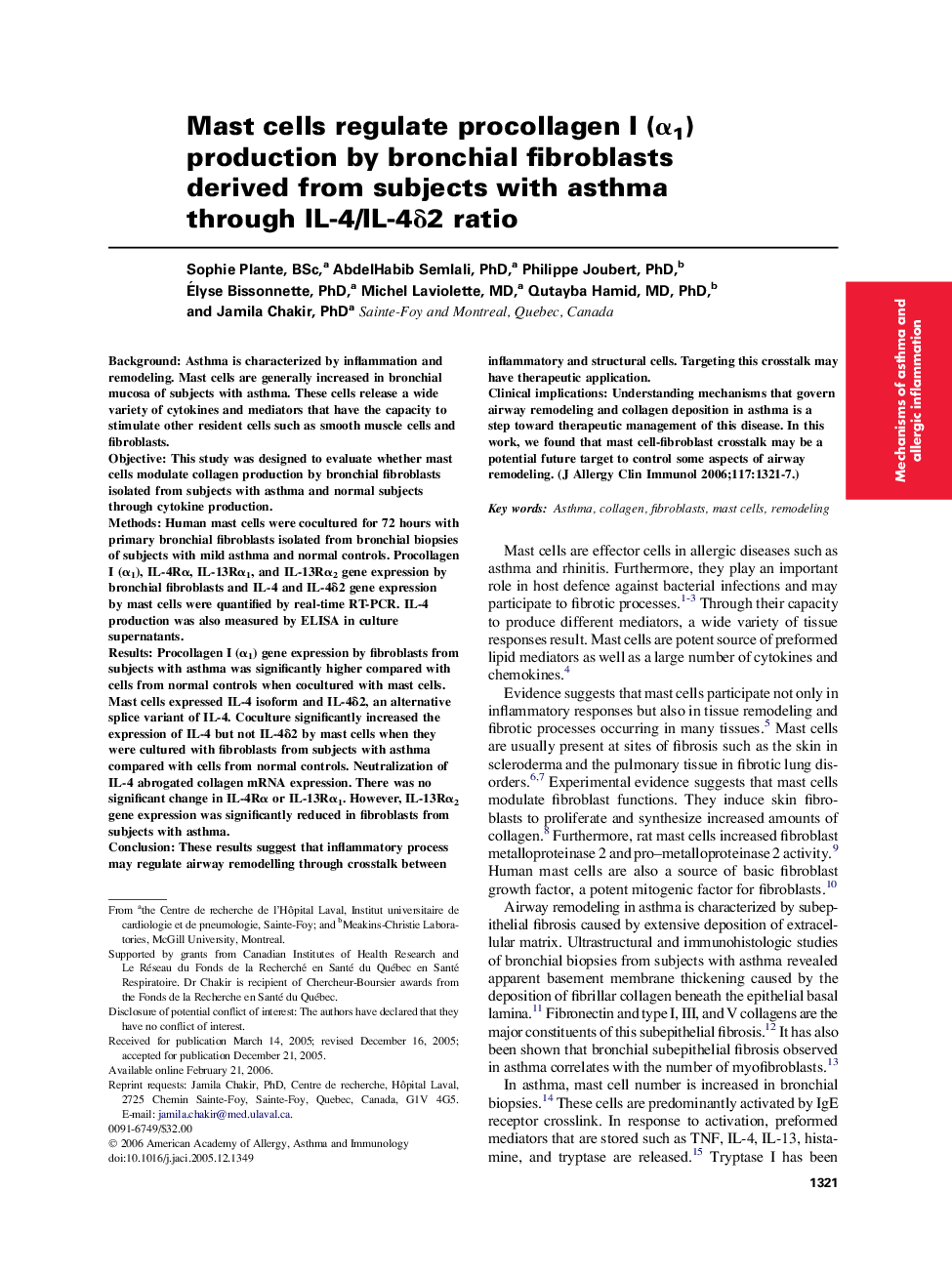| Article ID | Journal | Published Year | Pages | File Type |
|---|---|---|---|---|
| 3203693 | Journal of Allergy and Clinical Immunology | 2006 | 7 Pages |
BackgroundAsthma is characterized by inflammation and remodeling. Mast cells are generally increased in bronchial mucosa of subjects with asthma. These cells release a wide variety of cytokines and mediators that have the capacity to stimulate other resident cells such as smooth muscle cells and fibroblasts.ObjectiveThis study was designed to evaluate whether mast cells modulate collagen production by bronchial fibroblasts isolated from subjects with asthma and normal subjects through cytokine production.MethodsHuman mast cells were cocultured for 72 hours with primary bronchial fibroblasts isolated from bronchial biopsies of subjects with mild asthma and normal controls. Procollagen I (α1), IL-4Rα, IL-13Rα1, and IL-13Rα2 gene expression by bronchial fibroblasts and IL-4 and IL-4δ2 gene expression by mast cells were quantified by real-time RT-PCR. IL-4 production was also measured by ELISA in culture supernatants.ResultsProcollagen I (α1) gene expression by fibroblasts from subjects with asthma was significantly higher compared with cells from normal controls when cocultured with mast cells. Mast cells expressed IL-4 isoform and IL-4δ2, an alternative splice variant of IL-4. Coculture significantly increased the expression of IL-4 but not IL-4δ2 by mast cells when they were cultured with fibroblasts from subjects with asthma compared with cells from normal controls. Neutralization of IL-4 abrogated collagen mRNA expression. There was no significant change in IL-4Rα or IL-13Rα1. However, IL-13Rα2 gene expression was significantly reduced in fibroblasts from subjects with asthma.ConclusionThese results suggest that inflammatory process may regulate airway remodelling through crosstalk between inflammatory and structural cells. Targeting this crosstalk may have therapeutic application.Clinical implicationsUnderstanding mechanisms that govern airway remodeling and collagen deposition in asthma is a step toward therapeutic management of this disease. In this work, we found that mast cell-fibroblast crosstalk may be a potential future target to control some aspects of airway remodeling.
